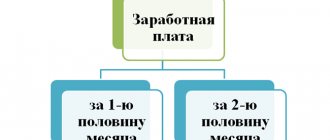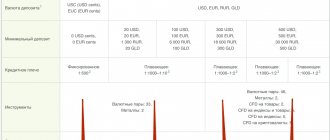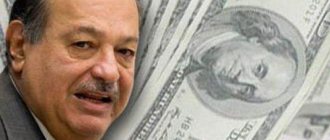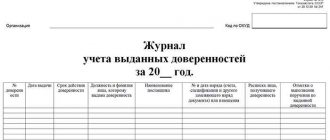Sometimes companies cash out money through individual entrepreneurs. This is due to the entrepreneur’s ability to freely manage funds in the account. Accordingly, no one restricts them from withdrawing income received from their activities in the form of cash. However, such a process can have negative consequences.
What is cash withdrawal through an individual entrepreneur?
Cashing out through an individual entrepreneur is the withdrawal of funds from the account of a private entrepreneur for real use. Cashing itself occurs constantly, since the economy needs real money to function properly.
Inspecting organizations cannot completely prohibit the withdrawal of funds from accounts. However, attempts by entrepreneurs to regularly cash out money invariably come to the attention of regulatory authorities. Individual entrepreneurs usually explain the desire to receive cash by the need to pay salaries or purchase production materials, but it is quite difficult to deceive inspectors.
Risks of entrepreneurship
By registering as a private entrepreneur, a person takes on the risks associated with the business and is responsible for possible violations:
- economic;
- civil;
- administrative;
- criminal.
A registered entrepreneur receives the right to conduct business and is responsible before the law for his activities. If a substitution is discovered, the one who leased someone else's status, as well as the one who transferred the status, will be punished administratively or even criminally.
Why do they do this?
Legislation allows organizations to spend funds only for certain purposes. This applies to the payment of dividends and salaries, and current needs. A company's cash desk can hold a limited amount of finance; tax must be paid on each type of income.
Restrictions apply to:
- The maximum amount for cash payments is no more than 100,000 rubles per agreement.
- Reflection of each operation in documentation, both tax and accounting.
- Availability of supporting documents - each type of expense must be justified.
Cashing out through an individual entrepreneur allows the company to reduce tax payments and withdraw assets in its own interests. In addition, it can be difficult for organizations to switch to a simplified taxation scheme. And in the general regime you have to pay 20% income tax, VAT, property, transport and other fees. Meanwhile, an individual entrepreneur may well work for the simplified tax system and pay a tax of 6% or pay a fixed fee for the simplified tax system, no matter how much he earns.
As a result of withdrawing money through an individual entrepreneur, official funds in accounts turn into unofficial cash. You can use it to pay salaries or use finances for other purposes. These funds are not listed anywhere and are not subject to tax. This is how funds are withdrawn from an organization that is facing bankruptcy, kickbacks and large bribes are given, and sometimes terrorist attacks are financed.
Important! The entrepreneur himself participating in such actions receives a certain percentage for this.
IP
payment of 6% or patent and withdrawal of funds
Position of the tax authorities: Based on the results of an on-site tax audit carried out for the period from 01/01/2012 to 12/31/2013, the inspectorate made a decision of the Office of the Federal Tax Service for the Republic of Khakassia dated 04/30/2015 No. 12-40/4-3 ( as amended on 08/17/2015 No. 186), by which the applicant applying the simplified taxation system from 01/01/2012 was additionally assessed corporate income tax, value added tax and corporate property tax under the general taxation system, and the corresponding penalties and fines were accrued. The basis for the decision was the findings of the inspectorate that the company exceeded the maximum allowable amount of income for applying the simplified taxation system, provided for in paragraph 2 of Art. 346.12 Tax Code of the Russian Federation.
GOOD TO KNOW
The main government body for identifying illegal cash withdrawals is the Federal Tax Service of Russia. It is authorized to conduct inspections and bring to justice established by law, and, if necessary, send materials for criminal prosecution to investigative authorities.
How to avoid consequences? The consequences are quite difficult to avoid. In the case under consideration, it is quite difficult to avoid the consequences, since the courts consider the totality of various aspects of doing business; the courts agreed with the conclusions of the tax authority that the applicant does not have the right to apply a simplified taxation system due to the receipt of unjustified tax benefits as a result of joint actions of the company and individual entrepreneurs as a single business entity subject.
First of all you need to:
- avoid joint activities between the company and entrepreneurs;
- conducting business in the same premises.
It is important to determine the purpose of concluding contracts. In particular, the tax authority and the courts have a negative attitude towards non-standard forms of contracts and non-standard forms of payments. In the decision under consideration, the purpose of the company concluding contracts for the provision of services for the processing of customer-supplied raw materials with the named entrepreneurs was to preserve the applicant’s right to use the simplified taxation system.
GOOD TO KNOW
An imaginary transaction is a transaction made only for show, without the intention of creating corresponding legal consequences. (Article 170 of the Civil Code of the Russian Federation) The main feature of an imaginary transaction is that the real goals of its participants diverge from the subject (essence) of the agreement. In fact, the parties do not attach legal significance to their contract and do not consider themselves bound by specific obligations towards each other.
The essence of the dispute 2 – making sham transactions
The Civil Code of the Russian Federation classifies imaginary and feigned transactions as invalid, that is, without legal force. The definition of these two types of transactions, their distinctive features, as well as responsibility for conducting them are described in the Civil Code of the Russian Federation.
An example of such a transaction is established in the Ruling of the Supreme Court of the Russian Federation dated March 29, 2017 No. 304-KG17-1513. The court found that when entering into economic relations with entrepreneurs, the company pursued the goal of reducing the tax burden by concluding sham transactions.
Scheme
What types of schemes are there?
The general scheme for cashing out funds through an individual entrepreneur works like this:
- The individual entrepreneur enters into an agreement with the company, specifying in it the amount to be cashed out and the percentage for the provision of the service.
- The entrepreneur pays the invoice and signs the work completion certificate, confirming the provision of services under the contract.
- Money is transferred in cashless form to the company's account. No services are provided in this case, the funds are transferred to the next organization, then to another and another. At first glance, all these companies are not related to each other.
- In the end, the funds are cashed out by a series of fake investors, payment systems, or in some other way.
Subsequently, a company representative meets with the entrepreneur and gives him the money.
It turns out that the entrepreneur paid the bill and received cash. From the point of view of tax authorities, this looks like payment by the company for the services of a contractor. But in reality there is a criminal scheme at work.
In fact, tax evasion occurs. The funds do not go to the budget and various funds; they do not go to pay for pensions and medical services. On the other hand, if funds can be cashed out to pay salaries, then the same can be done for criminal purposes: to purchase drugs, weapons, to launder money from prostitution and drug trafficking.
In order to cash out money through an individual entrepreneur, an entrepreneur registers using someone else’s documentation, stolen or purchased illegally. Sometimes a one-day individual entrepreneur is created, a suitable person is selected from marginal layers of the public. You can also open an individual entrepreneur for a friend or relative, or simply negotiate with the entrepreneur, offering him favorable conditions.
How the process is carried out
Law enforcement agencies know of many schemes through which money is “cash out”:
- The most common scheme is to register a shell company. Fraudsters whose IP will be used for money laundering, after registration, transfer a certain amount to the account of an individual. After a successfully completed transaction, the business simply closes. Very often, scammers register such individual entrepreneurs for socially degraded citizens (drug addicts, alcoholics, homeless people), who subsequently will not be able to tell anything to law enforcement officers;
- the second scheme is completely identical, only a bank is used to make money transfers. Mostly small financial and credit organizations participate in this scheme. To launder illegally obtained funds, fraudsters open bank accounts in the name of a fictitious person. Next, the money is transferred to the account of a private person, who cashes it out for a certain commission;
- If scammers do not want to deal with intermediaries, then they do the cashing on their own. The most sophisticated schemes involve transferring money to the current account of an individual entrepreneur. Since an individual entrepreneur is an individual, the money in the current account is his personal funds. Therefore, he can dispose of them as he pleases;
- The scheme for cashing out maternity capital funds has become widespread. This is prohibited by law, but a large number of individual entrepreneurs offer cash withdrawals with a certain percentage of the commission. At the same time, scammers try to document everything correctly so that there are no questions from law enforcement agencies;
- The most criminal way to cash out money is to use someone else's passport. Typically, scammers take passports from marginalized individuals, such as homeless people, alcoholics or drug addicts. Next comes the issuance of a bank loan to an individual entrepreneur, opened to a dummy person who has no idea that his passport data is being used to carry out fraud.
There are also schemes in motion to collect money from the population for certain services that are subsequently not provided. This applies to a popular service - diagnostics and repair of windows. Scammers collect money, but in reality they are not talking about window repairs. They simply disappear from view.
Consequences for the entrepreneur
If a person is offered to open an individual entrepreneur for cashing out or carry out this operation through an existing individual entrepreneur, he should remember that such actions are illegal. There is a certain responsibility for them, and in 2020 both criminal and administrative penalties apply.
There is even more than one article for cashing out funds through an individual entrepreneur. Such actions fall under three articles at once:
- About illegal entrepreneurship.
- On illegal legalization (laundering).
- About fraud.
Depending on the circumstances, other charges may arise against the businessman. A criminal scheme cannot be implemented alone, i.e. we are talking about a conspiracy of a group of people. There are stricter penalties for this. The statute of limitations in case of participation of several persons in a crime is 10 years, and not 2, as for a violation committed by one person.
The maximum term of imprisonment for illegal business and illegal disposal of cash is 5 years. Money laundering is punishable by up to 7 years. But first, the entrepreneur receives additional tax charges and a fine. The chief accountant and the head of a company that uses individual entrepreneurs for money laundering will have to pay 5,000-10,000 rubles. In case of repeated violation, the fine will be doubled, and disqualification for a year or two is possible.
Criminal liability may occur if at least 25% is not paid when a tax is calculated from 5 million rubles. in 3 years. The same applies to situations where taxes amounting to 15 million rubles are accrued for the same period, and non-payment exceeds 50%.
An example of a court decision on this issue. Tax officials discovered that the head of the LLC and the individual entrepreneur was the same person. As an individual entrepreneur, he did not conduct business activities, but at the same time he deliberately reduced the tax base by attributing the services of an individual entrepreneur to expenses. As a result, the violator was additionally assessed a single simplified tax, penalties and a fine.
How to work with an individual entrepreneur so as not to be suspected of cashing out money and working with a shell game?
Comment by Margarita Esipova, project manager for the Taxes and Law direction of the SRG Group of Companies:
In the fight against cashing out, the function of controller is currently performed by both banks and tax authorities. Banks may block a money transfer transaction until the basis for such a transaction is clarified. For example, they may request documents confirming its reality: an agreement, acts of acceptance and transfer, etc. The bank also pays attention to the regularity of transactions and their size. There is some unspoken limit for cashing out per month/quarter. For tax authorities, signs of an individual entrepreneur’s involvement in cash-out schemes also include a mass address, registration of multiple companies, including individual entrepreneurs, on one individual, absence of employees, and affiliation. Just like for banks, the reality of the contract and the work/services performed is an important criterion for identifying cash withdrawal schemes. In order not to be suspected of creating such schemes, you should check the counterparty according to the specified criteria, excluding cooperation with individual entrepreneurs who are far from real business activities, and also be ready to confirm the real economic need for cooperation with the individual entrepreneur and the absence of fictitious document flow.
Basic signs of cashing out
Regulatory authorities are well aware of how money is laundered through individual entrepreneurs. Tax authorities control the activities of legal entities and entrepreneurs. If certain signs are detected in their activities, inspections are carried out.
These signs are:
- Short lifespan (less than six months).
- Registration of a subject using a passport that is listed as lost.
- Concluding a banking agreement for servicing an account at a location other than the entrepreneur’s location.
- Absence of signs of real economic activity (office lease agreement, housing and communal services payments).
Tax authorities control banking transactions carried out by individuals. This also applies to citizens working in private enterprises. The Federal Tax Service receives data on the movement of company funds and has the right to conduct unscheduled inspections.
A sign of attempts to cash out money through an individual entrepreneur is the entrepreneur’s cooperation with only one company. This also includes interdependence between the founder of the organization and the businessman, for example, family relationships. Suspicions are raised by the closing of transactions at non-market prices and the provision by the entrepreneur of services not reflected in OKVED, which he indicated during registration. Another such sign is the individual entrepreneur’s lack of resources to fulfill the terms of the agreement.
Important! Each of the listed facts separately will not cause problems. But in combination with other circumstances, regulatory authorities may come to the conclusion that money was withdrawn illegally.
It’s not just tax officials who monitor the legal conduct of monetary transactions. Banks monitor suspicious transactions taking into account the provisions of the law on legalization of criminal proceeds. If such an operation is similar to cashing out, the banking institution has the right to suspend operations on the account and request the appropriate documentation from the individual entrepreneur. The legality of such actions has been confirmed by judicial practice.
For a bank, withdrawing all received money from an account and transferring it to a personal card, including in installments over a short period of time, looks suspicious. The financial institution must see that money remains in the account to pay salaries, taxes and other expenses. Suspicions are raised by:
- Identical transactions involving the withdrawal of large amounts.
- Operations that are inappropriate from an economic point of view (payment of huge salaries).
- Numerous short-term deposits that are periodically closed with cash withdrawals.
- Transfers to accounts in another bank offering less favorable conditions (low deposit rates, increased commissions).
- Operations that do not allow identification of the participants in the transaction.
Important! If the account is blocked, the individual entrepreneur is blacklisted by the Central Bank. This means significant difficulties with opening accounts in other banks.
Special units of the Ministry of Internal Affairs and the Investigative Committee fight money laundering. Additionally, Rostrud checks whether salaries are paid to staff using legal methods. When receiving salaries in envelopes, you should contact representatives of the Labor Inspectorate or the prosecutor's office.
Violation fee
Conducting a business under someone else’s name, using someone else’s cash register, current account, etc. is illegal. All participants are responsible for the following:
- Illegal entrepreneurship is a “shadow business” that is not controlled by the state.
- Evasion of taxes and insurance premiums if two or three people work under the same name.
- Violation of consumer rights. There is no legal person to whom the client can make claims in case of poor-quality goods or services.









